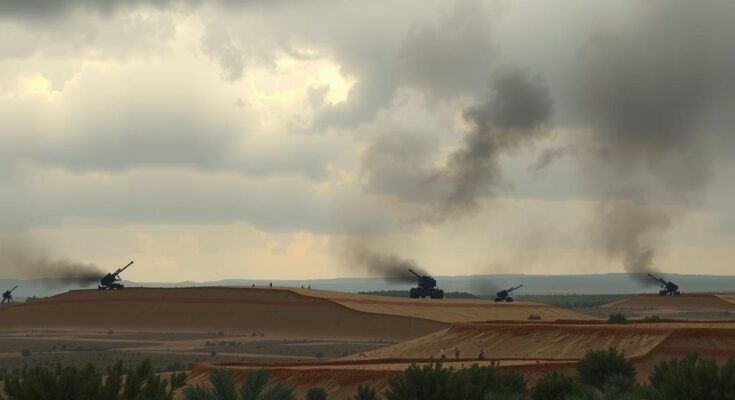Recent rocket fire from Lebanon into Israel has escalated tensions and highlighted the fragility of the ceasefire between Israel and Hezbollah. The ceasefire, established in late 2023, has seen continued Israeli airstrikes, causing concern that the situation might lead to a renewed conflict. Analysts speculate on the nature of the rocket attacks and call for attention to prevent further deterioration.
The relationship between Israel and Hezbollah has grown increasingly precarious following recent rocket attacks from Lebanon into northern Israel, prompting retaliatory airstrikes by Israel on the Lebanese capital, Beirut. This skirmish marks a significant escalation, as it is the first airstrike on Beirut since a ceasefire agreement was established by the United States and France, signifying the ceasefire’s vulnerability.
The ceasefire began on October 8, 2023, triggered by Hezbollah’s rocket fire, which was in response to Hamas’s attack on Israel. This escalation led to a full-scale conflict in September 2024, resulting in over 4,000 fatalities in Lebanon. The peace agreement required both Israeli and Hezbollah forces to withdraw south of the Litani River, with oversight from the Lebanese military and U.N. peacekeepers while allowing for defensive actions.
Despite the general cessation of full-scale war, hostilities have persisted post-agreement, with Israeli airstrikes continuing to target Hezbollah positions in southern Lebanon. The withdrawal of Israeli forces from certain border areas has occurred, although they maintain a presence in strategic locations for security purposes, amid public outcry for complete withdrawal.
Following the recent rocket fire, Hezbollah has denied its involvement, speculating instead that armed Palestinian factions may be responsible. Analysts suggest that these actions likely possess Hezbollah’s tacit approval, highlighting a complex interplay of local and external influences.
In response to the rocket attacks, Israel’s military assertively stated it would not tolerate threats against its communities, indicating a willingness to strike throughout Lebanon. Analysts express concern that Israel’s ongoing aggressiveness may jeopardize the fragile ceasefire, potentially leading to escalated conflict and undermining peace initiatives in the region.
The fragile ceasefire between Israel and Hezbollah faces significant challenges following recent violent exchanges. A disrupted balance of power, characterized by ongoing Israeli airstrikes and denied Hezbollah involvement in rocket fire, raises concerns regarding potential future escalations. The response from both parties, particularly Israel’s military stance, may dictate the ceasefire’s sustainability. Vigilance and diplomatic efforts remain essential to prevent further deterioration of the situation.
Original Source: www.wsls.com




